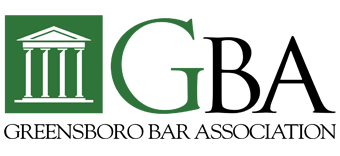This morning I was looking for an article I recently wrote to share with a friend. It took me a while, but I finally found it. I wrote the article in January. January? How is it possible that I couldn’t remember that it had been 12 weeks ago rather than 2 weeks ago?
According to Fast Company magazine, the pandemic really has made my memory worse.
How our memory works
Art Markman, PhD, is a professor of Psychology and Marketing at the University of Texas at Austin and the author of “Bring Your Brain to Work”.
According to Dr. Markman, there are three reasons why the pandemic has been bad for our memory.
In a normal day, we encounter a lot of information. Our brain does not store all of it because forming memories is energetically expensive. Our brain starts the memory process by estimating whether a particular piece of information is worth holding onto.
Even when we store this new information, our brain is trying to figure out how likely we’ll need that information in the future. Information we use often is easier to retrieve than information we only need in specific situations.
And finally, memories are retrieved based on the similarity they have to the situation we are in right now.
The pandemic has disrupted all three of these aspects of memory.
1. WAS THAT A SQUIRREL? (WE ARE WORSE AT PAYING ATTENTION)
A common observation in memory research is that the more we can concentrate the more likely we are to remember. However, the pandemic has made it harder for us to concentrate. Many of us are feeling stress, burnout, anxiety or depression and these feelings make it harder to pay attention. Many people feel disconnected or at least less engaged from their work as a result of juggling so many extra responsibilities and burdens such as managing illness, at-home school, or even navigating the journey back to normal.
As I write this article, it takes longer for specific words to come to me – I had to leave a blank above, then fill in “navigating” later. When this happens, my brain feels like mush. I experience a sense of fog that is similar to taking cold medicine, I can’t quite get things into sharp focus.
According to Dr. Markman, “The net result of this disengagement is that less information is triggering the work that is required to turn those encounters into long-term memories. Days may feel like a blur when looking back on them, because very few specific events may have been stored at all.”
2. WE ARE EXPERIENCING MORE SHORT-TERM ENCOUNTERS
During the pandemic we have had lots of short-term engagements such as multiple Zoom calls in a day or binge-watching a television series over the weekend.
However, according to memory research, when we briefly engage, our brain decides that we don’t need to access that information later. As a result, you may have trouble remembering the plot of something you binge-watched when the new season drops.
Dr. Markman says if we want to remember some of the things we are doing more clearly, we should increase the time that we engage with them. Watching one episode of Ted Lasso per week rather than the entire series at once, will help us to better remember the details later.
3. EVERY DAY IS GROUNDHOG DAY
“Remembering information is easiest when there is some distinct factor that is associated only with that information”, says Dr. Markman. “That is why you may have many memories of a trip to a country you visited only once. When you see pictures from that trip or even think back on it, you may be able to call up lots of detail.”
The pandemic has had the opposite effect because of our never changing view.
Many legal professionals were able to work remotely, and we were in our home offices much more than we were ever in our work offices. With no events to attend, no court to prepare for, and day after day of Zoom meetings, the scenery didn’t change.
Now that we are back in the office, or working hybrid schedules, and more events are opening around us, we should begin to shake that feeling that we are experiencing Ground Hog Day.
Strategies for reducing brain fog
Our brains function better when our stress and anxiety levels are lower. Taking care of our mental health is an important key to better brain function. If you need to see a professional, reach out to the State Bar LAP program, BarCares, or your insurance company for guidance to find the professional help you need.
Other brain fog reducing strategies include:
- Making time to be outdoors
- Getting physical exercise
- Getting mental exercise such as doing puzzles, playing games, or learning a new language
- Practicing mindfulness, and
- Getting plenty of sleep
Most health care professionals agree that reducing brain fog and getting back to normal is a matter of time. Pace yourself, treat yourself with kindness, and the fog will begin to lift.
Camille Stell is the President of Lawyers Mutual Consulting & Services and the co-author of “Designing a Succession Plan for Your Law Practice: A Step-by-Step Guide for Preparing Your Firm for Maximum Value”. Continue this conversation by contacting Camille at camille@lawyersmutualconsulting.com or 919.677.8900.














